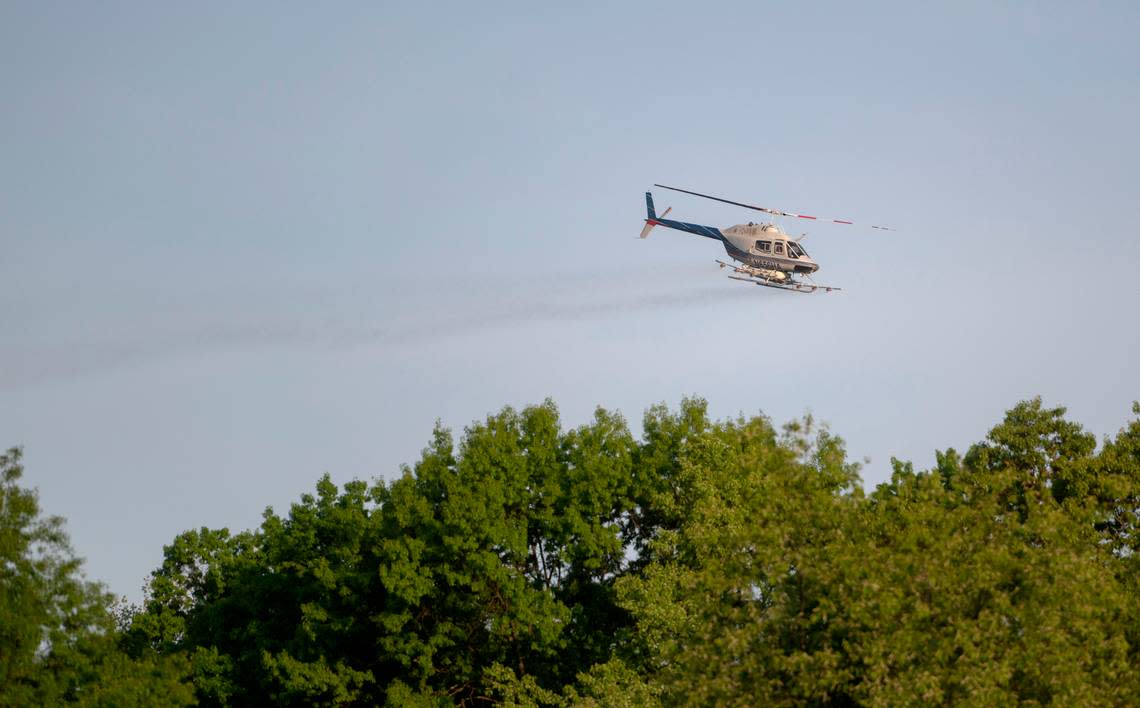Pennsylvania Game Commission to spray 124,000 acres to combat spongy moths

Pennsylvania officials are stepping up their efforts to control the spongy moth to prevent its spread.
The invasive insect, formerly called the gypsy moth, has established itself in the commonwealth and its numbers fluctuate.
This year, the Pennsylvania Game Commission will spend $2.4 million to spray 124,000 acres, up from 109,000 acres last year and 63,000 acres in 2022.
Based on commission surveys of egg masses, spraying will occur in the Southcentral, Northcentral, Southeast, Southwest, and Northeast parts of the commonwealth. The aim is to protect habitat and prevent the moths from harming oak trees especially.
“Last year, the year before, they hit really bad in the central part of the state,” said commission Chief Forester Paul Weiss. “When July rolled around, there were no leaves left on any of the trees. If you’d have been hiking around in July, it would’ve been full sun in the woods.”
The lack of leaf cover can lead to wildfires, he said, as the sunlight dries out the forest floor.
“What you see in high-population areas, everything will be covered by caterpillars,” Weiss said.
The Department of Conservation and Natural Resources will also spray their lands to limit spongy moth numbers and defoliation. The department aims to spray 228,000 acres. Weiss noted that, on some days, the commission and the department use the same airports to spray the forests.
On state lands, defoliation dropped dramatically last year, from 850,000 acres in 2022 to 440,000 acres in 2023, Forest Health Manager Rosa Yoo noted in a DCNR press release.
But the goal of those programs are mitigation, not elimination.
“It’s something we just have to live with, we do the best we can to suppress it in the areas that we can,” Weiss said. “It’s too big of a population, too widespread — we’ll never eradicate it. We just have to pick out our most important areas and try to protect them as best we can.”
Not spraying for the spongy moth would have consequences for some of Pennsylvania’s most well-known wildlife.
“We know that oak forest habitats are tremendously valuable to all wildlife,” David Gustafson, director of the Game Commission’s Bureau of Wildlife Habitat Management, said in a press release. “Everything from squirrels to bears to turkeys will have populations fluctuate based on acorn crops. If acorn production is low, bears will den earlier, weigh less, produce fewer and smaller cubs and get into more nuisance situations ... Wild turkey and ruffed grouse populations also depend on acorns. So the actions we take now help to keep all of that in balance.”

